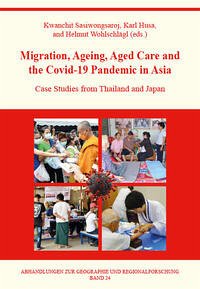Rapid population ageing, increasing pressure on health and social systems, and the growing importance and complexity of migration flows are challenges now facing not only countries in the Global North, but also a growing number of less developed countries. The COVID-19 pandemic has exacerbated the challenges, putting access to adequate health care and social services for all people in the country at the centre of respective government efforts. In particular, the elderly, the less affluent, and foreign migrants represent highly vulnerable populations in this regard. These processes have developed particularly dynamically in Thailand, that is one of the few countries in Southeast Asia with at least rudimentary access to basic health care for the general population. On the other hand, the sharp rise in the number of older people not only increases the pressure on the healthcare system, but also raises the question of how to ensure ageing with dignity in the future. Thailand is increasingly looking to Japan, the country with the world’s oldest population and considerable experience in coping with demographic change, for ideas on how to deal with these diverse problems. Moreover, Thailand is also known as a destination country that receives and employs large numbers of international labour migrants from neighbouring countries. The problem has become particularly virulent since the onset of the COVID-19 pandemic due to the question how they could be included in the respective information and vaccination campaigns. But Thailand is also facing ageing, health and aged care problems on a different front, namely in international retirement migration as many of the retirement migrants are getting older and many of them hardly have adequate health insurance. It is these intersections between demographic ageing, health and aged care, and international migration that are the focus of the contributions in this volume.
Bitte wählen Sie Ihr Anliegen aus.
Rechnungen
Retourenschein anfordern
Bestellstatus
Storno

